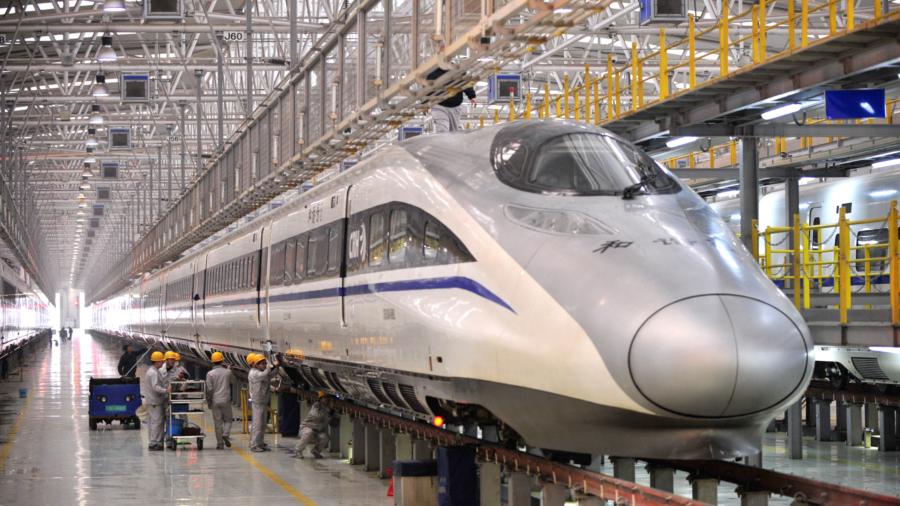A running high-speed rail line in southern China was called to suspend service after receiving a notice announcing that its manager had been diagnosed with COVID-19.
At around 16:00 local time on March 30, China’s railway authorities ordered Train G2190 to immediately interrupt its trip, citing that its chief conductor surnamed Tang tested positive, according to a March 31 notice by the command center for novel coronavirus control and prevention in Loudi City, southern China’s Hunan Province.
The rail line traveling from Chengdu City, Sichuan Province, to Shanghai had to halt at Loudi South Station in Hunan. Afterwards, all close contacts within the train were placed under quarantine.
Additionally, the authorities required all passengers on board to undergo nucleic acid tests at the nearest locations and report to their communities, employers, or hotels they were scheduled to stay, according to an emergency notice by the provincial CDC in Sichuan.

This is China’s latest effort to curb COVID-19 as the regime adheres to a zero-COVID policy despite doubts and criticism. And such an intervention is not an isolated incident.
On Oct. 28, 2021, the Beijing Railway Administration ordered Train G14 heading to Beijing from Shanghai to immediately abort its ride after one of the on-duty conductors was identified as a close contact to a confirmed infection. The train had to pull over at the city of Jinan, northern China’s Shandong Province, with 212 passengers and crew placed under control.
On the same day, the administration called off another train G108 traveling from the city of Jiaxing, eastern China’s Zhejiang Province, to Beijing, when it reached Cangzhou City, northern China’s Hebei Province, 212 km (131 miles) away from its destination, citing the same reason. One hundred and thirty-four people on the train were put into control.
Since the outbreak of the CCP (Chinese Communist Party) virus, the regime has been adopting a harsh “zero-COVID” strategy. A limited number of infections may trigger immediate closures, lockdowns, quarantine, and mass nucleic acid testing.
Data show that COVID-19 restrictions have significantly undermined the Chinese economy. In March, the Caixin China General Manufacturing PMI fell to a 25-month low of 48.1 from February’s reading of 50.4, missing the market consensus of 50.
Shanghai has been among the most hard-hit in the latest wave of COVID restrictions. In the district of Lujiazui, also known as China’s Wall Street, more than 20,000 bankers, traders, and other workers had to bed down in office towers amid local curbs, according to Reuters.
Meanwhile, frustration and anger have grown among residents over prolonged restrictions in the affected cities. There are reports of protests on China’s social media, describing stories of some senior citizens under stay-at-home orders, who are running out of food but cannot successfully shop online.
Patients with other diseases struggle to survive when the local hospitals have announced closure amid lockdowns.
There have also been a handful of tragic reports of residents stuck at home who committed suicide, some by jumping from high-rise apartment buildings, due to food shortages, unavailability of help, and despair, among other problems.
From The Epoch Times


